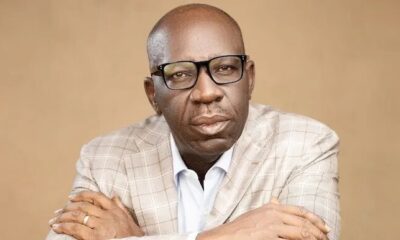Educational Issues
Nigeria: Has Cheating Become Our Way Of Life? -By Bámidélé Adémólá-Olátéjú


From time, majority of students all over the world, violate standards of academic integrity to varying degrees. However, examination malpractice and cheating to game the system and get ahead unfairly have become epidemic. The situation is worrisome because cheating has become easier, acceptable, expected and tolerated in Nigeria today. Schools and parents have become complicit in these immoral acts, by failing to stress what is allowed and what is prohibited.
Nigeria’s future is threatened! On websites like naijaclass.com, examcrown.com, exponet.com, examsort.com, gurus.com, examloaded.com, etc. students have been given access to questions and answers to the subjects whose examination they are sitting for in real time by sending recharge cards. With an eight hundred naira (N800) recharge card subscription, answers to the questions of an ongoing examination are sent directly to the phones of subscribers phone. With four hundred naira (N400), the answers are provided on the website. Solutions to tests are available online at least 24 hours beforehand. These sites are run like legitimate businesses, and they have advertisement, promos and bonanzas on them. They are hiding in plain sight! There are even testimonies on the websites from students who have used them. With schools eager to show off as being academically superior to others, some of them bribe invigilators to look the other way during examinations, so that their students can use their phones to access the answers in the halls where they are sitting for papers. Others take to large examination centres, where invigilators cannot cope with the number of students sitting for the exams.
With fewer options available to today’s youth and a pervasive culture of mediocrity, it is not difficult to see why the pressure has been building up and why adults are abetting this unwholesome behaviour. In the past, cheating was what struggling students did. Now, more and more students are cheating to thrive. Young Nigerians raised in the age of telephony have very little sense of ownership and authorship of intellectual materials; many of them simply lift these products belonging to others without the acknowledgment of the sources. Theirs is to search, download, copy and paste! It is so sad that our ethical muscles continue to atrophy in the face of relentless assault from mental and physical laziness, and a growing disdain for hardwork and general lack of shame. Of course, there can be no incentive to studying hard when less than five thousand naira can fetch distinction in all subjects. Unfortunately, special centres and websites like these give unscrupulous advantage to students who do not study and are unserious. With the aid of money-for-any-misdemeanour charlartans and parents, admission slots into universities are allocated to empty heads with paid-for distinctions, freezing out good, hardworking students. We no longer think hard about the long-term implications of our actions. It is all about money, cars and homes acquired through any means possible!
Nigeria’s emphasis on rote learning and certificates has turned examinations into high-stake plays. Because life opportunities depend on its outcome, the motivation to use unfair or foul means is high. In a country where everyone want to be a university graduate, secondary leaving certificate examinations and UTME shape the career and future of students. These folks are pushed to do well by all mean, as those examinations determine where students can get admission into and which professions they can be admitted into studying.
We need major changes to reverse the rot within our educational appraisal systems. It won’t be about raids and arrests alone. We need a long term strategy of frequent and formative assessments as a better measure of learning and competence. We must lower the stakes attached to a single examination, and the nature of examinations need to change. Instead of asking questions that test memorisation skills or those sourced from textbooks, examinations should focus on case studies and questions that force students to think, interrogate, articulate and undertake their critical thinking. Our examinations should be curriculum based and not textbook based. The application of knowledge is what Nigeria needs, and examinations should be modified and challenged to reflect this. Textbook based questions promote rote learning, which has continued to be the bane of African education. It is the reason we haven’t won Nobel Prizes in Physics, Economics, or Medicine. Examination questions for young people should be such that can be answered from a number of perspectives, given their depths of reasoning, creativity, perception and language. We need students who can put forward logical and quality arguments to explain phenomena.
Examinations ought to make cheating as difficult as practically possible, which is why third parties are a must. But, third parties are often prearranged, bribed or threatened with violence. Students who are caught cheating must be punished sufficiently to serve as deterrence to others. However, our experience has shown those measures are not enough. In the last forty years, our moral values, mores, ethos and norms, as a society, have weakened. Nigeria’s future is bleak unless we work on our values. We have to ask ourselves: What do modern changes mean and what are their effects on our values? How can we manage change, restore our values and maintain it? Nigeria needs a multidimensional strategy on how we set examination questions, what we examine and how we conduct examinations. We need a thorough look at a society that is normalising all that is antithetical to growth, peace and development. A society where cheating is viewed as normal is primed for anarchy. Such society cannot make any appreciable progress.
Bámidélé Adémólá-Olátéjú a farmer, youth advocate and political analyst writes this weekly column, “Bamidele Upfront” for PREMIUM TIMES. Follow me on Twitter @olufunmilayo



















